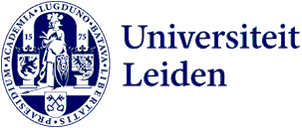
NWA grants for interdisciplinary consortia
Several consortia in which Leiden University is involved have been awarded Dutch Research Agenda funding. Leiden is the coordinator of five of these consortia. These five consortia will receive grants worth a total of almost 24 million euros. They relate to interdisciplinary projects that will bring scientific and societal breakthroughs within reach.
In total, over 149 million euros has been made available, 131 million euros of which is from the Dutch Research Agenda and 18 million of which has been funded by the (international) consortia partners.
Leiden University is the coordinator of the following projects:
Dilemmas of diversity (DIDI): diversity policies and practices in Dutch towns in the past, present, and future
Policymakers, politicians, journalists and academics stress the importance of a cohesive society, with room for diversity (according to ethnicity/race, gender, class, religion and sexuality). Diversity policies are meant to enhance social cohesion, but in practice, they oftentimes do not work as intended or planned. This is a severe problem because the idea that policies are ‘failing’, and that part of the people are excluded, undermines trust in and the resilience of democracy. The dilemma is that, in order to be able to address all citizens equally, they must be treated unequally. How does ‘doing diversity’ work best?
Coordinator: Marlou Schrover - Faculty of Humanities, Institute for History
Sum awarded: 1.8 million euros
Bridging the gap between quantum computing and society
The first quantum computers have shown that they can perform calculations far beyond the capabilities of classical computers. Now is the time to convert this computing power into useful applications for Dutch society. The researchers in this consortium will tackle this challenge from two sides. First, they will collect socially relevant computational problems together with partners from the business sector, TNO and universities of applied sciences. Second, they will conduct fundamental research into new quantum algorithms to solve these problems. This approach offers the best guarantee of achieving the consortium’s common goal — a first useful application of quantum computers.
Coordinator: Alfons Laarman - Faculty of Science, LIACS
Sum awarded: 2 million euros
CURE4LIFE: Development and societal impact of stem cell based genetic medicines
For a number of rare genetic diseases, correcting the genetic defect in the patients’ own blood stem cells can mean a lifelong cure. Many curative gene therapies do not reach patients for reasons other than a lack of treatment quality. The consortium proposes to develop a platform infrastructure that can be used for many diseases rather than focusing each time on a unique approach for each disease. The researchers will also address challenges regarding the regulation, reimbursement and public acceptance of these therapies in a knowledge hub for dialogue with society.
Coordinator: Frank Staal - Faculty of Medicine/LUMC
Sum awarded: 5 million euros
Social work and the art of crafting resilient societies
Social resilience is seen as the panacea for challenges ranging from deepening inequalities and polarisation to the energy transition. But how can social resilience be created? Working with partners from government, professional associations and knowledge institutions, this project will study social interventions in eight Dutch cities that seek to bolster social resilience by crafting new relations between the state and marginalised citizens. How do social professionals work with policymakers and citizens to envision new state-citizen relations, and how do they deal with the conflicts, dilemmas and power relations they encounter? Read more about the project here.
Coordinator: Anouk de Koning - Faculty of Social and Behavioural Sciences, Cultural Anthropology and Development Sociology
Sum awarded: 5 million euros
Next generation immunodermatology (NGID)
In the Netherlands, over 2.5 million patients suffer from chronic inflammatory skin diseases. Although these chronic conditions are not life-threatening, the personal impact and socio-economic costs are very high. The biggest problem is that many treatments are not suited to all patients and often do not work. To improve this, the researchers need to find out which treatment works for each individual patient. They will therefore investigate six inflammatory skin diseases in ultra-high detail that will enable them to make patient-specific fingerprints that will predict the best care for each individual patient.
Coordinator: Robert Rissmann - Faculty of Science, LACDR
Sum awarded: 10 million euros
In addition to these coordinator positions, Leiden University is a partner in another ten consortia.
